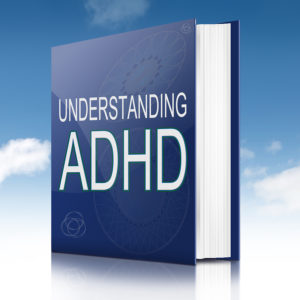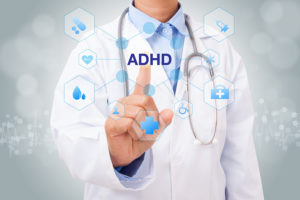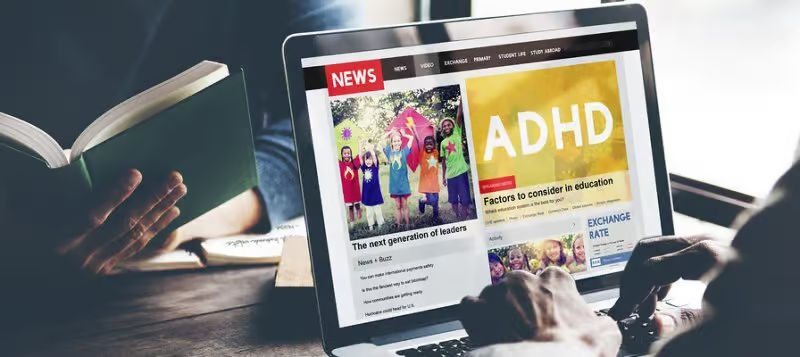Table of Contents
Key Takeaways
- B-Vitamins and multivitamins are crucial for brain health and neurotransmitter synthesis.
- Acetylcholine’s role in ADHD can be supported with nootropics like ALCAR and CDP-Choline.
- Nootropics like Ashwagandha and Bacopa Monnieri help repair damaged neuroreceptors in ADHD.
- Noopept enhances cognition, memory, and provides neuroprotection.
- Combining specific nootropics with essential vitamins can optimize brain function for managing ADHD symptoms.
Depending on the severity of your ADHD symptoms, you may be able to use nootropics as an alternative to prescription stimulants like Adderall, Ritalin, Vyvanse and their variations.
I experimented for a year by using nootropics in place of the 20 mg of Ritalin I had been using 3-times a day for several years. And for the most part, I was successful in taming my Adult ADD symptoms.
Adult ADD Nootropic Stack
The ADD/ADHD stack I use includes:
- Mind Lab Pro
- Performance Lab® Energy – twice per day
- CDP-Choline – twice per day
- ALCAR – 750 mg 1-time per day
- L-Tyrosine – 500 mg 3-times per day
- Sulbutiamine – 400 mg twice per day
- Aniracetam – 750 mg twice per day
- Vinpocetine – 10 mg 3-times per day
- Performance Lab® Omega-3 – 3 GelCaps per day
- 1 tablespoon unrefined Coconut Oil or MCT Oil– 3-times per day
- Performance Lab® NutriGenesis Multi – 4 caps per day
During my one-year stimulant holiday, the ingredients in Mind Lab Pro along with L-Tyrosine, CDP-Choline, and ALCAR (included in Performance Lab Energy) kept my dopamine, norepinephrine, and acetylcholine levels high enough to maintain focus, motivation and improve my memory. Vinpocetine kept my brain blood flow at optimal levels. And Aniracetam and Sulbutiamine improved my mood.
But after a year I decided to go back to using 20 mg of Ritalin twice per day. Because my workload had me writing 10 hours per day. And maintaining working relationships with 2 or 3 clients at once.
By adding Ritalin back to my stack I was able to reduce the time it would take to complete a project from 3 days to 1 ½ days. Proof to me that my overall brain health couldn’t make it with nootropics alone.
The beauty of continuing to use L-Tyrosine, CDP-Choline, and ALCAR even after I started using Ritalin again was that I avoided the stimulant “crash” that is so common late afternoon when using stimulants. And I was able to reduce the original 20 mg Ritalin 3-times per day down to only twice per day.
And I have not experienced building up tolerance to Ritalin that is so common when using stimulants to treat ADD or ADHD.
Your situation may be different, or ADHD symptoms not as severe. Only you can decide if nootropics can replace ADHD meds. The stack I describe on this page is designed to be used with or without stimulant meds.
Whether you use this stack with meds or without, you’ll need to discover for yourself what dosages of each nootropic are ideal for you. Because the amounts that work for me may not work as well for you. You may need less NALT and/or ALCAR.
Experimenting is the key to success with nootropics. And knowing as much as you can about what’s going on in your brain that needs to be fixed. But after many years of recommending this ADHD nootropic stack to people just like us around the world, we know this works.
The pre-made nootropic stacks mentioned in this post include:
Prescription “Smart Drugs” vs. Nootropics for ADHD
This post is in response to many emails and questions I’ve been getting about how to treat Attention Deficit/Hyperactivity Disorder (ADHD) or Attention Deficit Disorder (ADD) with nootropics.
So if you are dealing with ADHD, hopefully this post will help. Especially if you are using stimulants like Ritalin, Adderall, Vyvanse, Focalin, or any of the other stimulant prescribed for ADD/ADHD. Or you are trying to deal with ADHD naturally by avoiding prescription stimulants.
This information can also help if you are a student or executive who uses prescription “smart drugs” like Adderall or Modafinil to boost productivity.
Here we’ll dig into the causes of ADHD or ADD in your brain. Symptoms associated with ADHD. And what you can do using nootropics, or nootropics stacked with stimulants to correct ADHD symptoms.
I’ll also include ways to potentiate the effectiveness of prescription stimulants with nootropics so they work better.
If you’ve never ‘officially’ been diagnosed with ADHD, but some of this resonates with you, you could be ADHD or ADD. And this may point you to some answers.
I’ve been ADD all my life. (ADD is ADHD without the hyperactivity). But it wasn’t until about 16 years ago, that a very wise psychiatrist identified what was going on. And why I had been struggling with focus and other problems with behavior. That no amount of self-help books on focus and management could ever correct.
Ritalin turned the lights on for me. And completely changed my life for the better. This was the seed that sprouted my interest in neuroscience and nootropics. And ultimately launching Nootropics Expert®
What is ADHD & ADD?
Attention Deficit/Hyperactivity Disorder (ADHD) or Attention Deficit Disorder (ADD) are associated with attention and executive function in your brain.
Your prefrontal cortex directs behavior, thought and feeling which are all associated with working memory. This fundamental cognitive function is what most “healthy” people take for granted, are what make up executive function.
This executive function and working memory give you the ability to:
- Regulate your attention
- Inhibit inappropriate behavior and thought
- Monitor your actions
- Plan and organize your future
If you can’t focus on the task at hand, blurt things out at inappropriate times, have little control over your emotions or actions, and can’t seem to stick to that careful set of goals you wrote down, you may be ADHD.
The Role of Norepinephrine and Dopamine in ADHD
Norepinephrine and dopamine are the primary neurotransmitters involved in ADHD because they play an essential role in attention and thinking.[i]
The “inattentive” type of ADHD is related to issues with the norepinephrine, and the “hyperactive and impulsive” type of ADHD is linked to dopamine dysfunction.
These two neurotransmitters work in concert to maintain alertness, increase focus, sustain thought, effort, and motivation. The only difference between the two is the presence of a hydroxyl group. And dopamine is the precursor to norepinephrine synthesis in your brain.[ii]
Much of what we read about ADHD focuses on dopamine’s function in your brain. But norepinephrine (NE) plays a critical role in activating your reaction to events. And how you respond to the event.[iii] NE is essential for collecting information coming in through your senses. And then modulating your brain’s response.
Any disruption in this NE system can result in ADHD, Post Traumatic Stress Disorder (PTSD), sleep disorders and more.[iv]
For example, NE working with postsynaptic α2-adrenoceptors (α2-AR) in your brain play an essential role in helping you focus and eliminate distractions when you’re paying attention to something.[v]
This is just one example of what goes wrong with ADHD brain function. My point in bringing this all up is not to overwhelm you with neuroscience.
But to make clear that simply suggesting too much or too little of a single neurotransmitter like dopamine cannot explain the complexity of ADHD.
So using a nootropic like L-Tyrosine to amp up dopamine in your brain is often not enough to take care of ADHD symptoms. Or using Adderall with someone who has a problem with alpha2-receptor binding with norepinephrine may not get much benefit.
This is the reason that experimenting with various stimulants and/or nootropics is often the only way to find a long-term solution to keeping ADHD under control. And why some respond better to a drug like Ritalin and not as well to Adderall. Or vice versa.[vi]
And recent research shows serotonin and acetylcholine are involved too. Mostly the “hyperactivity” part of ADHD which includes movement, inattention, and impulsivity.[vii]
Smart Drugs Used to Treat ADHD Symptoms
If you are truly and clinically ADHD or ADD, it is unlikely that optimizing your diet, getting plenty of sleep, using nootropics, and exercising regularly will get the symptoms of ADHD under control.
The most severe forms of ADHD often benefit from using prescription medication. Otherwise known as “smart drugs” in some circles, these meds are typically amphetamines or methylphenidate.
The amphetamine-class of ADHD prescription drugs includes Adderall (75% dextroamphetamine salts and 25% levoamphetamine salts), Dextroamphetamine, and Vyvanse (Lisdexamfetamine).
The methylphenidate-class of ADHD medications includes methylphenidate (Ritalin) and its variants like Concerta, and Focalin.
Adderall and Ritalin both work with dopamine and norepinephrine in your brain. But through different mechanisms of action.
Ritalin is a pure uptake inhibitor of dopamine and norepinephrine without any other presynaptic activity.[viii] Adderall on the other hand, has additional presynaptic activity, releasing dopamine and norepinephrine from presynaptic neurons.
The idea for the last 60 years or so, has been if we could boost dopamine and norepinephrine in the brain, ADHD symptoms would go away. As long as we’re taking the medication.
Why Prescription Attention Deficit Hyperactivity Disorder Meds Often Don’t Work
 In an ideal world, taking one pill 2 or 3 times a day to treat ADHD would put your life back on track. And help you function like a ‘normal’ person.
In an ideal world, taking one pill 2 or 3 times a day to treat ADHD would put your life back on track. And help you function like a ‘normal’ person.
But real-world results often don’t work out as well as theory. For several reasons. For example, what if there’s not enough dopamine or norepinephrine in your brain in the first place? Then stimulants will not work as well as planned because they haven’t the neurotransmitters in place to work with.
You could also have problems with not enough or damaged neuroreceptors. Natural aging processes can slow blood flow or inhibit the production of neurotransmitters. A lack of acetylcholine could prevent your neurotransmitters from doing what they were designed to do.
This is where nootropics can help save the day in treating the symptoms of ADHD.
Optimizing Dopamine & Norepinephrine
 One of main culprits contributing to ADHD symptoms is a lack of dopamine (DA) and norepinephrine (NE) in your brain. Or your brain is not using the available DA and NE effectively.
One of main culprits contributing to ADHD symptoms is a lack of dopamine (DA) and norepinephrine (NE) in your brain. Or your brain is not using the available DA and NE effectively.
Stimulants like Adderall and Ritalin work to boost levels and use of these two critical neurotransmitters.
Production of dopamine and norepinephrine in your body and brain follows this metabolic pathway:
Phenylalanine → Tyrosine → L-DOPA → Dopamine → Norepinephrine
Dopamine is converted to norepinephrine by the enzyme dopamine β-monooxygenase, with O2 and ascorbic acid (Vitamin C) as cofactors.
Norepinephrine can be further converted into epinephrine by the enzyme phenylethanolamine N-methyltransferase with SAM-e as cofactor.
Nootropics to boost dopamine and norepinephrine include:
- L-Tyrosine – L-Tyrosine is the precursor to the synthesis of dopamine in your brain. L-Tyrosine enhances working memory, executive function, creative flow states, reduces stress, improves mood and is anti-anxiety.Suggested dosage of L-Tyrosine or NALT for ADHD is 350- 500 mg twice per day. I successfully stack 500 mg of NALT or L-Tyrosine 3-times per day. Once each time I dose with Ritalin, and a last dose mid-afternoon to prevent a stimulant crash later in the day.
- Mucuna Pruriens (L-Dopa) – Mucuna works as an antioxidant and heavy metal chelator, improves memory & cognition, reduces depression and boosts libido.L-Dopa is also the direct precursor to dopamine. Suggested dosage of Mucuna Pruriens is 250 – 500 mg per day. But if you’re just starting out with nootropics, I highly recommend using L-Tyrosine or NALT instead of Mucuna Pruriens. Because Mucuna can be more difficult to dose since it directly stimulates the production of dopamine. L-Tyrosine and NALT are more ‘forgiving’ when it comes to dosage.
- N-Acetyl L-Cysteine (NAC) – NAC is an amino acid that regulates the amount of glutamate and dopamine in your brain.NAC can be used to address the symptoms of ADHD. And may even help eliminate some of the negative side effects associated with prescription ADHD stimulants. Suggested dosage of NAC is 600 mg 3-times per day.
- Phosphatidylserine (PS) – PS can help improve alertness, attention, cognition, memory, recall and mood, and lower anxiety. All issues associated with ADHD.Phosphatidylserine is a phospholipid component of the membrane encasing every one of your brain cells. PS helps maintain the fluidity and permeability of brain cells. Improving the flow of dopamine and acetylcholine. Suggested dosage of PS is 100 mg 3-times per day.
- Pine Bark Extract – Pine Bark extract helps prevent decreases in dopamine and norepinephrine. And the glutathione (GSH) and GSH-disulphide reductase (GSSG-R) ratio. Neurotransmitter problems which contribute to hyperactivity in ADHD.Pine Bark extract also helps boost blood flow in the brain by increasing nitric oxide which helps dilate blood vessels. And it helps reduce oxidative stress, membrane damage, DNA damage, inflammation, and glycation.I’ve found one of the most potent forms of Pine Bark extract comes in both Mind Lab Pro® and Performance Lab® Mind.
A word of caution here in boosting the catecholamines dopamine and norepinephrine. Too much of either is not a good thing. In fact, excess levels of either will throw your neurotransmitter levels out of balance. And can cause anxiety, insomnia and panic attacks.
Taming Hyperactivity with Nootropic Supplements
The “H” in ADHD stands for hyperactivity. Boosting levels of dopamine and norepinephrine can help balance out hyperactivity. And help calm and focus your mind. But often simply boosting or balancing these neurotransmitters is not enough.
Recent studies show that serotonin and dopamine interaction also play a role in ADHD.[ix] Serotonin is involved in the uptake, synthesis and breakdown of dopamine in your brain. Problems with serotonin seem to contribute to behavior and impulse control.
Much more research needs to be done in this area of ADHD. But we can help control and balance serotonin with nootropics.
- 5-HTP – This amino acid is synthesized from the amino acid tryptophan. And 5-HTP is the immediate precursor to serotonin in your brain.5-HTP can help relieve anxiety and depression, fibromyalgia, insomnia, migraines and likely the hyperactivity, depression and anxiety associated with ADHD. Suggested dosage of 5-HTP is 50 mg up to 3-times per day. Please see my dosage notes and warnings before you try supplementing with 5-HTP.
- Ginseng – Ginseng helps calm anxiety, and boost attention, concentration and memory. Ginseng provides neuro-protective effects on the dopaminergic-pathway which can help with ADHD. And ginseng is a serotonin and norepinephrine reuptake inhibitor (SNRI).Suggested dosage of Ginseng is 100 – 400 mg per day.
- L-Theanine – L-Theanine commonly found in green tea helps boost alpha and theta brain waves, is anti-anxiety, boosts cognition and memory and reduces insomnia.L-Theanine also helps boost GABA, serotonin and dopamine levels in your brain. Suggested dosage of L-Theanine is 150 mg 2 – 3-times per day.
- Rhodiola Rosea – Rhodiola Rosea helps improve alertness, energy, memory and mood, is anti-anxiety and antidepressant, reduces fatigue and boosts memory and concentration.Rhodiola influences serotonin and norepinephrine levels in your brain. Suggested dosage of Rhodiola Rosea extract is 150 – 200 mg per day.
- Saffron – Saffron acts as a dopamine and norepinephrine reuptake inhibitor. Similar to how Ritalin works. A randomized double-blind study was conducted with 54 children 6-17 years old who were given 20 – 30 mg methylphenidate or 20 – 30 mg Saffron per day for 6 weeks. At the end of the study researchers concluded, “Short-term therapy with a saffron capsule showed the same efficacy compared with methylphenidate.”Suggested dosage of Saffron is 30 mg per day.
- Vitamin B6 (Pyridoxine) – Vitamin B6 helps your brain make serotonin, norepinephrine and melatonin. Suggested dosage of B6 is up to 100 mg per day.
- Vitamin B9 (Folate) – Folate (NOT folic acid) as a nootropic helps your brain make dopamine, epinephrine, norepinephrine and serotonin. Suggested dosage of Folate is 400 mcg per day.
- Vitamin B12 (methylcobalamin) – is a cofactor in the synthesis of neurotransmitters acetylcholine, dopamine, GABA, norepinephrine, and serotonin. Suggest dosage of B12 is 100 mcg per day.
B-Vitamins are Critical in Controlling ADHD
Take note that several of the B-Vitamin group are involved in the production of the neurotransmitters involved in ADHD. I recommend adding a good B-Vitamin Complex that include methylfolate (not folic acid) and methylcobalamin (not cyanocobalamin) to your stack. Both in a pure nootropic stack as well as when using any of the ADHD prescription stimulants.
But it’s not only the B-Vitamins that are required for a healthy, fully functioning brain. We also need each of the 13 vitamins and 13 minerals needed for everything from blood flow, neurotransmitter synthesis and release, brain signaling, and neuroprotection.
I’ve found the easiest way to make sure my ADD brain gets all the vitamins and minerals it needs every day is to also use a multivitamin/mineral supplement.
The best I’ve found so far is the multivitamin called Performance Lab® NutriGenesis Multi. It’s better than the “raw-food” multi I was using for years. And makes a difference I can actually feel.
But please note that this multi is in addition to a B-Vitamin Complex because the ADHD brain needs more of these critical nutrients than what is normally in any good multivitamin.
The Role of Acetylcholine in ADHD
Researchers at Vanderbilt University Medical Center discovered that there are three types of ADHD.
We’ve already covered the “inattentive” type that is related to issues with the norepinephrine transporter gene. And the link to the dopamine transporter gene in the “hyperactive and impulsive” type.
But the research team now report that a variation in the choline transporter gene is associated with a “combined” type of ADHD. Symptoms include both inattention and hyperactivity/impulsivity.
Choline is required to synthesize acetylcholine (ACh) which is needed for memory, motor-control, focus, learning, concentration, and cognition.
If you have the “combined” type of ADHD it’s likely due to a mutation in this choline transporter gene variation.
Nootropics to boost acetylcholine include:
- ALCAR (Acetyl-L-Carnitine) – ALCAR donates a methyl group in the presence of Coenzyme-A for the synthesis of acetylcholine. And it’s also a shuttle transport for fatty acids through brain cell membranes. It shuttles fatty acids into mitochondria for ATP synthesis, and shuttles toxic byproducts out.
Research from the Linus Pauling Institute shows ALCAR will restore mitochondrial function, replenish age-related changes to mitochondrial structure, and helps replenish acetylcholine levels to your brain and body.
And other studies show that ALCAR stimulates nerve growth factor. Helping support survival and growth of neurons. Which is particularly important for the ADHD brain and especially when using prescription stimulants that may be tough on neurons.
- Alpha Lipoic Acid (R-LA) – Alpha Lipoic Acid increases acetylcholine production by activation of choline acetyltransferase and increases glucose uptake. This process supplies more Acetyl-CoA for the production of acetylcholine.
Alpha Lipoic Acid enhances insulin-stimulated glucose transport and metabolism for better brain cell performance. And R-Lipoic Acid provides strong antioxidant support because it helps regenerate and recycle existing antioxidants in your brain including Vitamins C & E, glutathione, and CoQ10.
I’ve since switched the ALCAR supplement in my ADD stack to Performance Lab® Energy because this pre-formulated energy stack contains my preferred dose of ALCAR. But note that I also take another 500 mg of ALCAR with L-Tyrosine late afternoon to prevent a stimulant crash.
Performance Lab® Energy also contains Alpha Lipoic Acid and ALCAR which helps my ADD brain produce acetylcholine.
- CDP-Choline (Citicoline) – Citicoline helps synthesize phosphatidylcholine (PC), a major phospholipid found in brain cell membranes. And provides choline for the synthesis of acetylcholine while providing antioxidant activity.
The CDP-Choline (Citicoline) in my ADD stack is supplied by Mind Lab Pro® which is the base of my nootropic stack.
But a suitable alternative to MLP is Performance Lab® Mind which contains the branded form of citicoline called Cognizin®.
Performance Lab® Mind and Mind Lab Pro® also contain L-Tyrosine, Phosphatidylserine (PS), and Maritime Pine Bark extract.
Repairing Neuroreceptors Needed to Control ADHD
One of the issues with neurotransmitters and ADHD are damaged or non-existent receptors. Dopamine, norepinephrine and serotonin have less receptors to bind to for cognition and mood control.
Once again, nootropics come to the rescue in helping control ADHD. You can add one of these nootropics to your stack to help boost neuron and receptor health.
- Ashwagandha – This adaptogen, Ashwagandha helps reduce anxiety and depression. And helps reconstruct axons, dendrites and synapses involved in neurotransmitter signaling in your brain.Suggested dosage of Ashwagandha extract is 250 – 500 mg per day.
- Bacopa Monnieri – Bacopa helps boost memory and cognition, improves mood, and reduces stress. This adaptogen affects brain levels of acetylcholine needed for neurotransmitter signaling.And the two active components of Bacopa Monnieri called bacosides A and B not only improves signaling of electrical impulses between neurons in your brain. Bacosides also help rebuild damaged neurons. Suggested dosage of Bacopa is up to 450 mg per day.
- Lion’s Mane – Lion’s Mane Mushroom is known for stimulating Nerve Growth Factor, improving cognition and memory, and relieving depression.Lion’s Mane stimulates the repair and creation of neurons in your brain. Neurons needed for dopamine and norepinephrine to control ADHD. Suggested dosage of Lion’s Mane Mushroom starts at 500 mg per day. Note: that there’s an effective 500 mg dose of Lion’s Mane full-spectrum fruiting body in each dose of Mind Lab Pro®
- Noopept – Noopept helps boost cognition, memory, learning, perception, logical thinking and mood. Noopept increases Nerve Growth Factor, and Brain-Derived Neurotrophic Factor (BDNF) critical for neuroplasticity and Long-Term Potentiation critical for long-term memory.Noopept also prevents the release of excess glutamate in your brain. Providing potent neuroprotection for neurons and reducing damage. Suggested dosage of Noopept is 10 – 30 mg per day.
Please note that I haven’t linked through to supporting clinical studies for each of the nootropics I listed above. But you can click through to my full review of each nootropic for extensive research supporting each supplement.
Nootropics for Kids
ADHD and ADD is most often diagnosed in children. The latest statistics (2011) from the CDC in the USA shows about 11% of children 4 – 17 years of age (6.4 million) have been diagnosed ADHD.[x] And that’s just for the USA.
Although ADHD is usually first diagnosed in children, it often lasts into adulthood. I sometime wonder how my life would have been different if I had been declared ADD when I was a kid.
But it wasn’t until the late 1960’s that the American Psychiatric Association formally recognized ADHD as a mental health disorder. I wasn’t declared Adult ADD until much later.
The thing is many parents are wary about putting their children on powerful, prescription ADHD meds. Kids’ brains continue to develop until your early 20’s. So is it a problem messing with brain chemistry at such a young age? Only time will tell and if the benefits outweigh any potential risk.
Hence the reason why parents are looking for ‘natural’ alternatives like nootropics to treat ADHD in children. But are nootropic supplements any safer than prescription stimulants?
Common sense tells me that using L-Tyrosine could be safer than Ritalin for boosting dopamine. And Rhodiola Rosea could be safer than stimulants or antidepressants for taming hyperactivity.
But many children with ADHD, natural supplements may not be enough. I’m not a doctor, and don’t even play one on TV. I’m an ordinary biohacker who has learned as much as I can to help myself. And fix my own cognitive performance issues. Including Adult ADD.
So I highly recommend you find and work with an open-minded psychiatrist with your child. You may be pleasantly surprised to find you may be able to reduce or eliminate prescription ADHD meds altogether to enhance cognitive functions. And maybe not. But the long-term health of your child could be worth the time investment to find out.
In Summary
I’ve been wanting to write this post since I started Nootropics Expert®. If you are ADHD or ADD, I hope you found this useful. And I’d appreciate your feedback, and share your experience with treating ADHD with nootropics in the comments section of this post below.
Please share this post with anyone you think would benefit. Including discussions about nootropics for ADHD on reddit or Longecity.
One final note. Neurotransmitter balance is key to taming ADHD. I strongly caution you to take it slow if you’re just starting out with nootropics. Carefully read each of the extended articles in the List of Nootropics you are considering trying.
You need to be careful about side effects, prescription drug interactions, dosages and how your body reacts to each supplement to ensure healthy brain function.
But I’m confident that with careful planning and a long-term commitment, your cognitive enhancement will be just as successful as I have been in living and thriving with my Adult ADD.








Join The Discussion - 784 comments
iesha
March 19, 2018
I really appreciate this post! So much info and since I’ve got an ADD brain, I’ll need to read it through a few times to make sure I took that all in. I’m a 43 year old woman whose mom was told for repeatedly years that I “daydream too much” or “can’t keep still”, you know the usual ADHD tale of woe. I’m kinda clever so I managed stumble, bump, fall, and crash my way through college (and life so far lol) but last year after yet another semi major life failure, I decided to seek help for the ADD. It just affects every area of my life. From my ability to organize pretty much anything, to being able keep a clean house or even stay remotely on top of bills. Quite honestly, I’ve been in some ways just a walking disaster. I had some extensive psych testing and was officially diagnosed. The doc started me on a low dose of adderall (10 mg) and over the last six month that is now increased to 60 mg a day. Indeed I’m definitely better on it than off of it but in many ways I’m still a wreck. I’m also concerned about the fast that I seem to need more and more of it. Part of the issue is that I was on extended release for a few months and the doc says that for some people, XR Adderall loses effectiveness over time. I now take three 20 mg pills a day (morning, lunch, and then late afternoon). I am concerned that this will also lose effectiveness in time. Also there is this new issue of insomnia. Sleeping is very hard to come by. I can rarely get down before 3 AM and then I’m up by 6 AM – 7AM and often can’t mange a nap to make up for the loss (mind just won’t settle down). If I skip the Adderall (which I do at times so that I can mange a nap), I’m literally ALL over the place so I’m looking for an alternative to Adderall or possibly like you, something to add to the mix that will work with the Adderall and allow me to take less of it and increase it’s effectiveness. I’m getting pretty tired of failing and the psych testing also indicated that I’m of fairly high intelligence (though I’m no genius by any stretch) but certainly smart enough to have done better than I have thus far in life. The repeated failure has taken it’s toll and I do think I am struggling with some depression. On top of all of that I’m kind of an odd person and can be rather socially awkward. I’m hoping to find some help for that and the ADD with the Nootropics. Any advice that you can offer would be greatly appreciated as well.
David Tomen
March 19, 2018
Iesha, the insomnia is very likely coming from using Adderall too late in the day. If you follow the protocol in this post including the dosage recommendations later in the afternoon, you should be able to avoid the stimulant crash. And the nootropic supplements described in this post help potentiate Adderall.
Your brain starts to lose efficiency as you get older. Monoamine Oxidase builds up and prevents dopamine from doing its thing. And dopamine levels drop as you age as well. To help Adderall work you need to give your brain the dopamine and acetylcholine it needs. Otherwise, it doesn’t have the level of neurotransmitters required for Adderall to do its job.
Study this post as you mentioned until you understand what you need to do. I’d also suggest learning exactly how Adderall works in your brain. That will help you tie this post and what you learn from your homework together. Oddly enough, Wikipedia is a good place to learn more about Adderall and how it works.
iesha
April 2, 2018
Many thanks for the reply and excellent info David! I definitely see that just popping pills as prescribed isn’t going to get me where I need to be. Done that for a year with rather disappointing results. Very hopeful for a much better brain going forward.
Terri Hogue
February 21, 2018
Hello David –
Please know I have looked at several of your articles: Best Nootropis of 2017-2018, Nootropics Expert List of Blog Posts and the article on ADHD. I have a question or request if you will, it is to chart the differences between ALCAR, NAC and NALT.
I am a 52 year old woman who had been on Vyvance for 4 years with great success. My husband and I moved last year somewhat retired. When my PA found out I was on Vyvance, she rolled her eyes and told me she wasn’t comfortable with prescribing that, so I did some research on my own and thought I’d try a more natural approach. I bought L-Phenylalanine 500mg and also Acetyl-L-Carnitine 1000mg. This didn’t seem to do the trick so I found a new doc who would at least listen to me in why I wanted my brain back.
Anyway, I was given 10mg Adderall and she raised it to 15mg. Today, I researched to see if I could still take my L-Phenylalanine 500mg and also Acetyl-L-Carnitine 1000mg along with my Adderall. That is when I found you.
I too, have hypothyroidism along with ADHD. My father had Lewy-Body Alzheimer disease and so I am a bit nervous in my future. I am a visual learner so I would love to ‘see’ a chart, but if not I would love for you to email me the differences between NAC, ALCAR and NALT to possibly help both my ADHD and possibly stay or enhance memory. Thank you.
David Tomen
February 22, 2018
Terri, the differences between ALCAR, NAC and NALT are clearly explained in the full review of each of these nootropics. You can get to the full review of each by clicking on the live link near the top of this post. The review for NAC is here: https://nootropicsexpert.com/n-acetyl-l-cysteine/
ALCAR is a precursor needed to produce acetylcholine (ACh) in your brain. ACh is required for brain cell signalling.
NALT is a precursor to the synthesis of dopamine. Adderall works by increasing levels of dopamine in your brain. NALT provides some of that missing dopamine in the aging brain so Adderall can do its job.
NAC’s primary job is a precursor to the major antioxidant in your body glutathione. It also modulates glutamate and dopamine levels in your brain so things don’t get out of whack.
The stack I describe in this post is specifically designed to support the ADHD or ADD brain. And to support whatever prescription ADHD stimulant meds a person may be using. But they are ALL required to make this stack work. Including the B-Complex vitamins.
I highly recommend you learn exactly how Adderall works in your brain. Wikipedia is a good resource for these types of medications. Look for the section that says “mechanism of action”.
Then learn in detail about each of these nootropics by using the information provided here. So you have a clear understanding how these supplements work. And how they may interact with the prescription medications you are using.
Marisa
February 15, 2018
Hi – Thank you for sharing all of this that you are learned. Wozers. I am looking more and more into adding a supplement to my son (and possibly husbands) prescription stimulants. I have looked at length at your articles, but cannot find the answer to these questions.
1. We are looking for an afternoon booster for when my sons Focalin has worn off. For focus for homework help and not to be so emotional. I am hesitant to add an after dose as he already barely eats anything and is under weight.
2. I have noticed that you take several things multiple times a day, but then see dosages on other entries to take once a day….Can we take supplements just in the afternoon and expect them to work fairly quickly? Do they need to build up in the system or should we know quickly if working. I mean I can tell if it is, but if not do we start looking for something different after a week? Month?
Thanks for any thoughts.
David Tomen
February 16, 2018
Marisa, Focalin is similar to methylphenidate (Ritalin) but you do not mention if you are using instant or extended release. Focalin works by making more dopamine and norepinephrine available in the brain. Which provides the benefits of impulse control and better focus.
The reason why I use the nootropic stack in this post is to help Ritalin do its job by providing more dopamine and acetylcholine in the brain. I dose it throughout the day to make sure my brain has what it needs all day.
I also recommend adding one more dose around 3 – 4 pm so there is no stimulant ‘crash’. The brain is not depleted prematurely of dopamine and norepinephrine by using this stack again later in the afternoon. Which allows me to keep working until I decide to quit for the day.
If you follow the dosage instructions for each of the nootropics in this stack including amounts and time-of-day you’ll find that Focalin doesn’t wear off. It is possible to dose later in the afternoon only. But to get the full benefit of this stack it is better to follow the directions and dose 3 or 4 times per day.
Trial and error is key to making nootropics work for you. The stack I outline in this post is a “suggestion” that works for me and lots of other people. But you may need to tweak it as you gain more experience.
Kelsey
January 29, 2018
I should have clarified, I was recently diagnosed with ADHD finally hence the addition of Adderall.
Kelsey
January 29, 2018
Hi David,
I am so glad I stumbled upon this. I am so intrigued and interested in learning as much as I can. I actually am 28, and was diagnosed with depression 4 years ago about losing a close family member. That may have been true, however, I also experienced lots of anxiety symptoms around that time. I have used Zoloft, and often got nose bleeds on that. I went off meds and tried to do with diet alone, and now back on Wellbutrin, and Adderall on 10mg. I have noticed a huge difference adding the Adderall finally. However, If I can help myself in a safer way I’d like to.
I’m wondering since both of the meds I am on now interact with dopamine, would you recommend eliminating some of the examples you gave above?
I do still have hypersexuality/impulsivity and procrastination which may always be an issue, I don’t know.
Any suggestions would be appreciated.
Thank you,
Kelsey
David Tomen
January 29, 2018
Kelsey, my first recommendation is really dig into how exactly Wellbutrin and Adderall work in your brain. For example, Wellbutrin is a norepinephrine reuptake inhibitor. That means more norepinephrine is available in your brain. That will cause problems in excess. Especially when combined with Adderall. Do a search for “excess norepinephrine” so you understand what I mean.
Also understand exactly how Adderall compares to methylphenidate (Ritalin) and how each works in your brain. You may find more success using instant release Ritalin. And maybe not. I find that my brain responds better to Ritalin than to Adderall. But each of us is unique in so many ways. So what works for me may not work for you.
I would revisit using Wellbutrin. And see if you can get to where you want to go by using an ADHD med combined with the right nootropics.
Hypersexuality is associated in the med literature with impulsivity. But no can agree on a specific cause or definition. As a result, the term was eliminated from the latest edition of the Diagnostic and Statistical Manual of Mental Disorders (DSM-5). It falls in the same category as other “addictions”, and the overactivity of the dopaminergic mesolimbic pathway in the brain. So we come back to dopamine again.
I keep on going back to learning how each of these drugs work in your brain because that is the only way to understand which nootropic supplements will help. You are correct in that a couple of the nootropics in this stack support dopamine. But not in an excessive way. Just enough to provide the dopamine your brain needs for the stimulant meds to work without the crash at the end of the day.
But using the wrong meds will make it more difficult to get your brain working relatively normally again. And harder to select the right nootropic supplements. I hope I didn’t confuse you here. The bottom-line is keep doing your research. Do not be afraid to experiment with different nootropics. The list in this post is a good starting point. But keep your dosages at low end of the recommendations. The key is continuing to experiment with meds and nootropics until you find your sweet spot.
Leo
January 6, 2018
Hi David, I am impressed with your knowledge. Thank you for this post.
I have ADHDH, with predominance of impulsivity, and dispersion. I also have hyperactivity when I get nervous or anxious (when I have pressure the anxiety jumps).
Above all, attention is the most difficult thing for me to cope with. I was smoking cannabis everyday for 12 years (16 to 28). 1 month and a half ago I stopped completely the consumption and I am starting to run every day.
I’d like to start with nootropics.
8 years ago, I spent a few months taking concerta (methylpenidate extended release) but it left me too serious, I did not laugh or express my emotions in a natural way, it made me too serious for my way of being. I would like to start with nootropics, what do you recommend? I would like to have more mental clarity, control impulsivity and be able to enjoy more things (remove anxiety?).
For now I have been struck by fish oil, NALT and vitamin B, also lions mane and ashwagandha. Could you recommend something specifically? Thank you very much and sorry for my bad English.
David Tomen
January 7, 2018
Leo, I remember a few years ago the anxiety you are referring to. It happened at the strangest times. Like when I was being questioned by someone. It was like my body, and especially my neck would ‘lock up’. It would only last for a few seconds but was extremely uncomfortable. And kinda’ scary.
I haven’t experienced that symptom in years. Not since I started using nootropics. First thing I suggest is re-visiting methylphenidate. Find a doc to work with you and try the instant release kind at a lower dose.
But whether you try methylphenidate again or not, I recommend trying the entire stack I outline in this post. Because it covers every symptom you describe. Change your fish oil to a high quality DHA supplement. Make sure your B-Complex vitamin is using folate and NOT folic acid. And is using methylcobalamin and NOT cyanocobalamin. I would replace lions mane and ashwagandha with Mind Lab Pro because it covers many of the brain benefits as those two nootropics. And your cost would be about the same.
And one final note is make sure you are taking a therapeutic dose of each of the supplements you are using. This is often higher than the manufacturer’s recommended dose on the bottle label. Use the low end of the dosage recommended for each here on Nootropics Expert so you see how you react. Then raise the dose within acceptable limits from there.
Andrew
November 29, 2017
I’m suffering of mild depression, anxiety and adhd.
I’m thinking to use your recommended stack adding:
Coline
B9
B12
complex of B and C
trimethyl glycine
and exchange the ritalin with the modafinil for the first month. If i’ll see changes i’ll try also the ritalin because i don’t want that my parents discover this
thank you
David Tomen
November 29, 2017
Andrew, I suggest finding a highly bioavailable B-Complex supplement and not including individual Vitamins B9 and B12 so you avoid any kind of toxicity. And take Vitamin C as a separate supplement.
Paul
November 21, 2017
Hey David
Very nice post! I have a question: i’m adhd, a bit depressed and I have an internal block because I can’t speak freely, i need to think long time (adhd) and i have a bad situation with my inner critic. I tried meditation, sport and reading tons of books about this but nothing helped me. I’m tring the Lab Pro and is improving my mood (depression) and energy but i’m feeling still confused and stuck in my brain. in addition to the Lab pro i’ll try the complete stack and the Ritalin but i would ask you if you think that there is something for these inner blocks that’s during years…
it’s like to think i need to pass through a sub-personality that kicks me off.
thanks David
David Tomen
November 21, 2017
Paul, it’s difficult to say what will help here except be open to some experimentation. First, I highly recommend the following which have been found to improve “sociability”:
https://nootropicsexpert.com/kava/
https://nootropicsexpert.com/aniracetam/
https://nootropicsexpert.com/vitamin-b9-folate/
For the last one, it’s “folate” and NOT folic acid. You would be a step ahead by finding a B-Complex that included higher doses of ‘folate’ with Vitamin B12 (‘methylcobalamin’). Both are the type your body naturally uses.
If you decide on Aniracetam, you need to stack it with Alpha GPC or CDP-Choline. More than what is available in Mind Lab Pro.
My last suggestion is along the lines of meditation which you said didn’t work for you. I have been using Centerpointe Research’s “Holosync” for the last couple of years. And found it’s made a big difference (which is difficult to explain). Please go to their website and read some of the research. It’s like meditation amped up several notches. And it works.